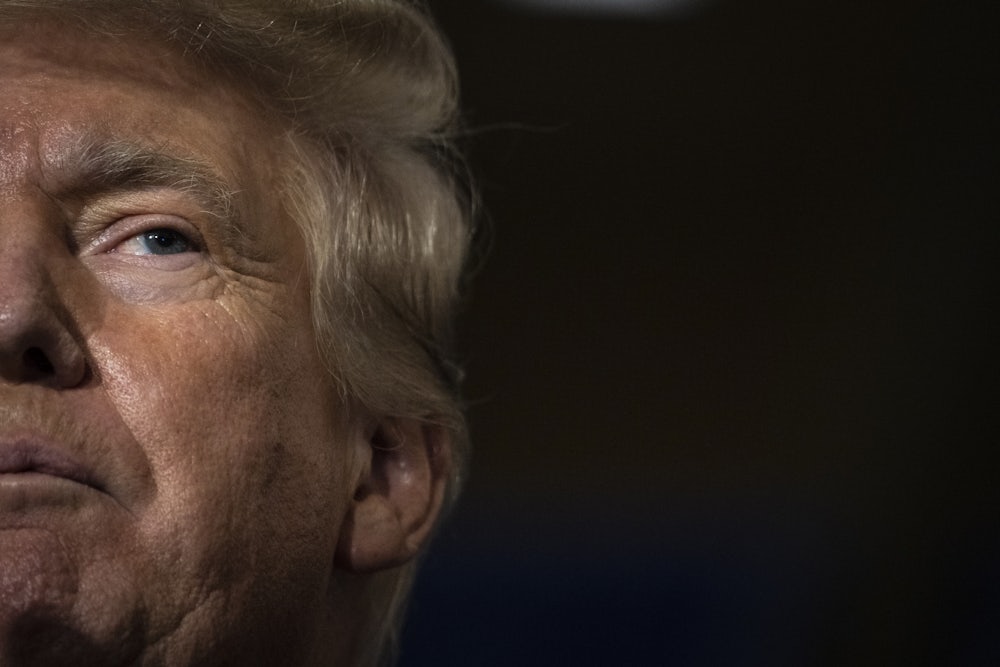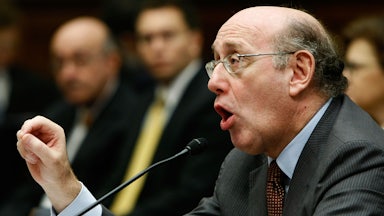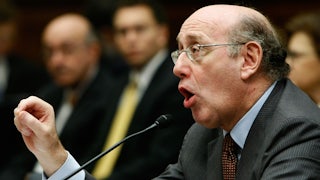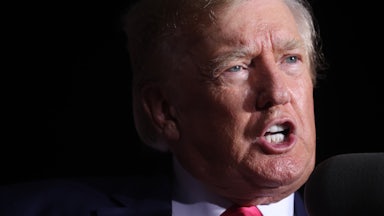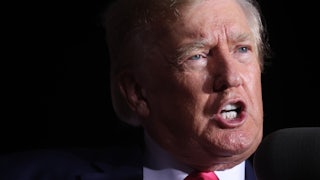Say someone took some important and personal papers of yours. You go to court, and a judge decides you can get those documents back. You would expect, by following the rules, that you could, right? Now say you were the U.S. Department of Justice and you wanted some documents back that you had had in your possession. The DOJ has even more reason to think it should not just have the documents back but use them to investigate possible crimes, right?
A federal judge in Florida, Judge Aileen Cannon, disagrees. The DOJ seized, from Donald Trump’s Mar-a-Lago residence, 11,000 documents, about 100 of them having national security classifications. It had a warrant because it had enough evidence to suggest crimes may have been committed, and the seizure has reinforced that view. But Judge Cannon took the unusual step of temporarily blocking the DOJ’s ability to use the 100 classified documents to investigate those crimes. Now the DOJ has appealed that ruling to the Eleventh Circuit Court of Appeals, and little wonder as to why: The very first sentence of its appeal says that the lower court blocked “the Executive Branch’s use of its own highly classified records in a criminal investigation with direct implications for national security.”
Cannon’s opinion is shocking, but the DOJ is not appealing all of it. Cannon appointed a “special master” to review all 11,000 pages because some are probably personal and not relevant to the investigation and some might be privileged—communications with attorneys giving legal advice or opinions, and executive privilege. Rather than appeal that decision, Justice is only trying to get its criminal investigation back underway on the 100 pages that are indisputable national security documents. They are not personal papers or subject to attorney-client privilege. I won’t dignify the executive privilege claim with a comment.
We, the people, need to understand exactly how much this marks our departure from the once shared belief that no former president is above the law. Every one of us has a big constitutional stake in this procedural fight. Trump is a private citizen. Cannon’s decision affords him unique protections despite that. It halted, albeit temporarily, the criminal investigation’s use of the very documents seized by a judicial warrant.
While Trump has argued he declassified all classified documents, which is not necessarily a defense to the Espionage Act, and certainly not a defense to taking government records, his attorneys have not made that argument. Nor did Cannon ask for evidence of declassification. The payload of documents the FBI recovered from Mar-a-Lago does not alone prove that Trump is guilty of crimes, but it certainly shows that the independent federal judge who found sufficient evidence to sign the search warrant was right to do so. Trump is a person of interest because he admits he took these government documents, including classified documents, upon leaving office. Frankly, if it didn’t involve national security he should, nonetheless, be treated like any private citizen: fairly, not specially.
We had an honest constitutional debate about whether President Donald Trump could be criminally prosecuted, thanks to Robert Mueller’s report on Trump’s “perfect call” to President Zelenskiy of Ukraine asking him to interfere in our elections. Few scholars seriously questioned whether a private citizen who was formerly a president could be prosecuted for alleged crimes arising after he left office. After Richard Nixon’s Watergate resignation, President Gerald Ford pardoned him because Nixon faced the very real likelihood of prosecution for offenses committed while in office. In fact, Leon Jaworski, the Watergate special prosecutor, wrote a memorandum weighing the arguments for and against the criminal prosecution of the former president. In that memo, he did not raise any constitutional challenge to charging Nixon. What he said still stands: “The principle of equal justice under law requires that every person, no matter what his past position or office, answer to the criminal justice system for his past offenses.” He went on to cite Article 3, Section 1 of the Constitution for the proposition that impeachment did not shield Nixon from prosecution.
We don’t know whether the current DOJ investigation dovetails with, or will be connected to, investigations related to Trump’s second impeachment. But as Leon Jaworski made clear, it is irrelevant. One of the dangers to our democracy is Trump and his allies continuously undermining the credibility of democratic institutions. By no means is the DOJ or the FBI perfect, and nor should we assume that everything they do is lawful and just. But Cannon’s opinion attempts to undermine those institutions where they have followed the law. She suggested that the FBI had not taken the proper precautions to protect attorney-client privilege, using an example that demonstrated the process worked. The DOJ has a separate team, a walled-off set of FBI investigators known as the filter team, that reviews materials for privilege. The investigative team saw and transferred some materials to the filter team because they might be considered privileged. That’s what they are supposed to do. Cannon used that against them.
The absurd implications of the judge’s arguments amount to a privilege to Trump as a powerful person, despite the fact that he no longer holds that power. That should concern us all. The judge says Trump may be harmed in not getting some personal records back sooner. Really? Why? She continues that he may be harmed if privileged communications are viewed by investigators or leaked to the public and then states. But there is a lawful process of segregation and judicial review that applies to all of us private citizens. Trump is one of us.
Here’s the kicker. Cannon says, “Plaintiff has claimed injury from the threat of future prosecution and the serious, often indelible stigma associated therewith.” Well, yes, Trump may be harmed—because there is probable cause to believe crimes have been committed and the FBI may have evidence of it. Trump is in a world of legal trouble because of his own actions and for no other reason than that, period.
The same week that the Justice Department appeals Cannon’s decision, we have learned that the DOJ sent dozens of subpoenas to high-level Trump operatives and advisers, now making clear that virtually all of Trump’s efforts to remain in office are under investigation. We do not know of, nor have we seen any evidence that directly links the Mar-a-Lago national security investigation with the fake electors, Trump campaign financing, or the violence that erupted on January 6, 2021. But one thing is clear. Trump’s attorneys are also receiving subpoenas.
Sadly, this is not surprising. Since the 2020 election, Trump lawyers have been in the news for efforts to overturn the results. Four Trump attorneys in particular—Rudy Giuliani, Sydney Powell, Jenna Ellis, and Boris Epshteyn—have been in the sights of the January 6 committee for months. All had played some role, according to the committee chair, Representative Bennie Thompson; the attorneys spread the Big Lie, and at least two, Giuliani and Epshteyn, participated in the “fake elector” scheme. News reports state that federal agents seized Epshteyn’s phone pursuant to a warrant. A judge in the Michigan 2020 election case called for Trump attorneys, including Powell and others, to be investigated for ethics violations. The judge said it “was about undermining the People’s faith in our democracy and debasing the judicial process to do so.”
We don’t know how the DOJ investigation should end. We only know that it isn’t over and, for the sake of our democracy and the rule of law, we need it to be full and fair and to follow the same rules and protections for everyone, including private citizen Trump. Trump has spent the past several years undermining the legitimacy of democratic institutions, including the DOJ and the courts. It must stop.
